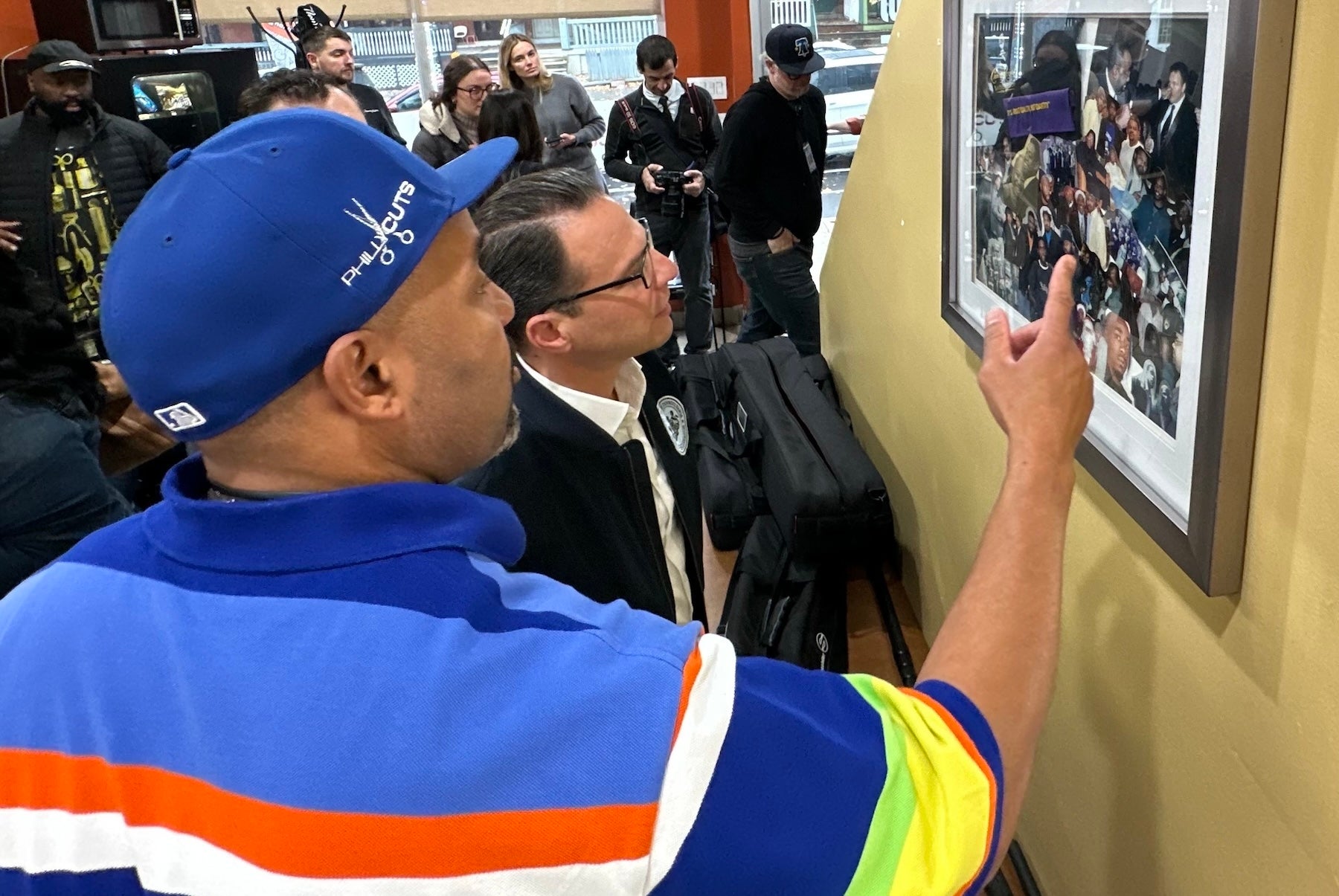Jobs
AI Is Taking Your Job. Here’s What To Do About It.

AI is taking your job. Here’s what to do about it.
According to McKinsey, 15% of the global workforce, or 400 million workers, might lose their job to AI by 2030. Google’s research is more positive, finding that 31% of jobs would be insulated from AI and 61% radically transformed by it.
Employers disagree. Every week there are AI conferences, meetups and webinars designed to help entrepreneurs leverage AI in their company. Founders want to make more impact, more money, with less hassle. And hassle means people.
The writing is on the wall. Employers are excited about AI. They are excited about growing their revenue without increasing headcount, which is now very possible with clever use of technology. Headcount used to be a measure of success for a company owner. A badge of honor. Now, the entrepreneur heroes are those that make more revenue per person than all the others. Growing your company by adding people isn’t aspirational.
Taking control of your role
The almost two-thirds of British jobs that could be “enhanced” with AI, from Google’s research, is a stat that hides the real truth. It’s not going to happen on its own. Your job will only be enhanced by AI if you make it so. Otherwise, it’s going to be replaced. The people within your organization who are leading the charge on AI processes will make sure of that.
So what’s the solution? Lead the charge yourself. If business owners are looking to make more money and impact with the same number or even fewer people, help them to do it. Entrepreneurs are crying out for employee-led initiatives; someone within their team being resourceful, forward-thinking, and making a plan for how the company can leverage AI. It’s those team members that will be the safest of all.
In 2020, Covid-19 disrupted the world in a short space of time. The AI revolution is multiples more transformative, but employees are still asleep. If your employer is looking to replace you, become irreplaceable. Here’s how.
Employee-led initiatives for AI adoption: what is happening?
Artificial intelligence is not a new concept by any means, but generative AI leapt to popularity with the launch of ChatGPT in November 2022. This friendly chat interface sparked the imagination of business owners and their teams. They were apprehensive, some terrified of being fooled (by AI-generated content) and replaced, but since then many have become resourceful and applied the technology in various ways.
Employees have been the driving force behind the transformation of some companies. Here are two examples:
One US-based investment company acquires software companies before rapidly growing them to generate inflated returns for its backers. The M&A team was booked in back-to-back meetings with potential acquisitions. Enter AI. One entrepreneurial team member analyzed the company’s most successful investments to uncover the defining factors of the companies and owners. He created a survey to screen companies and founders against those factors, then used AI to analyze the results of submissions.
The result? Fewer meetings booked, fewer M&A team members needed. Higher quality of meetings with higher chance of investment success. More impact, less time, fewer people. Now, they run ads to the survey itself, to expand their company with this effective method. The employee leading the campaign is a company hero.
Examples like this are becoming more common. One UK-based software company generates website traffic with search engine optimization tactics. Its owner hired a content writer to create articles to rank, with a specific output goal based on articles per week. But this content writer was resourceful beyond her job description. She tested the theory that by learning effective prompting, using Claude, she could multiply her article production by a factor of ten, without compromising quality.
The result? More output, less need to hire more writers. Company grows by search engine traffic alone. This employee made herself irreplaceable. This person is a founder’s dream.
How to lead an AI revolution within your company
If you’re employed in a company, the choice is yours. Wait for AI to take your job, wait for AI to “enhance” your job, or do something about it now. This isn’t about robots; this is about human potential. AI is a tool. See what you’re capable of and see what success you can create from your contracted hours. I promise you, it’s more than you think.
Here’s the PLEASE framework that I created to help structure how you transform your role and company with AI. It stands for: perspective, learn, experiment, ask, share and finally explore. Let’s get ambitious.
Perspective
Start by truly understanding what your company is there to do. On a fundamental level, what problem is it solving, and for which specific group of people? Write out your company’s mission statement at its most basic level in the format “We help [specific person] do [desirable outcome you create].”
Your job is to apply artificial intelligence to make that happen on a bigger scale. Not restricted by current limits. More profitably, more efficiently, in a more powerful way, with you leading the charge. Don’t take your eyes off the reason this matters. AI is your ticket to making more impact, not something to be afraid of.
Learn
The next step is to learn. Learn what’s out there. Learn how to prompt. Understand what AI can and can’t do, and grasp the benefits and limitations of relevant tools. Don’t confuse AI for automation, don’t think you need a complicated solution where a simple spreadsheet would suffice. Learning about AI is free. Newsletters, resources and courses all exist to help you out.
When you’re clued up, write down every process your role involves, from start to finish. Think about the optimal way each task could be done, and label it accordingly. Don’t delegate your superpowers. Your goal here is to identify quick wins for AI-ification, not outsource your genius and then coast.
Experiment
The next step is to conduct experiments, using this list, about which tasks could be eliminated, automated or AI-ified. Identify the bottleneck. Imagine your company had ten times the demand, which steps would soon break? Within the experiment phase, you apply AI to specific tasks and processes to free them from human constraints, including yourself.
This sounds complicated and costly, but it’s actually not. There’s more than one LLM. Most AI tools have free trials. You can book a consultation with an AI or automation expert on Fiverr, for a low relative cost. Track your time when using the tools, assess what they save, scrutinize the output and start to draw conclusions. This is your playground.
Ask
Depending on the structure of your organization, the “ask” can come at a different stage. Are you trusted enough to run experiments, or will your employer want a say from the start?
If you need permission to get started, present your case after doing your research. If you already ran the experiments, ask if you can implement them. If you already tested out the tools, ask if you can continue beyond the trial. Ideally, figure everything out for yourself before you have to get someone else involved. Ask for forgiveness, not permission. Move quickly and of your own accord, before the out-of-touch board gets a chance to slow you down.
Don’t let this stage cost your progress. You have the company’s best interests in mind, you know the priorities and your KPIs. You are simply doing your research on how AI can ensure you hit them. Your duty of care is solid. Self-learning, experimentation, ideation and commonsensical conclusions will help you present your case.
Share
When you have got perspective, learned about AI, experimented with solutions and got the required permission, present your findings and get everyone excited. Explain what you have found, share the details of what specific tools or interventions could achieve, and make recommendations for who does what going forward. Prepare well so you can deliver with confidence.
Focus on output, expansion, and impact, because that’s what your employer really cares about. The more you can be commercially aware and specific about the next steps, the more you will be credited for transforming your organization from the inside-out. Don’t underestimate the importance of this step. Aim to get buy-in from your seniors and colleagues. Aim to get momentum, then decide a future checkpoint for measuring progress. Own every part of this maneuver.
Explore
In the dream scenario, your research pays off and your experiments were worthwhile. You get team-wide buy in and everyone knows what they are here to do. You’ll have demonstrated your resourcefulness, proven yourself one of the most valuable team members, and opened up options for where you go from here.
Not only will you be getting stuck into a new challenge, you’ll be earning the company more revenue or saving costs, and have set a new standard for output that you meet with ease. The power is yours, and here’s where you explore your options.
Could you negotiate a promotion, shares, or a new area of responsibility? Could you take your learnings further than your department, your office or your country, to create bigger change within your industry? Enter the C-suite? Or could your E stand for Exit? Exit the company, become an entrepreneur? Achieve the grandiose outcome of your company with a team of just you.
The best employees are starting AI revolutions: yours begins today
Don’t get replaced by AI. Make yourself irreplaceable with this exact plan. Get inspired by what team members are doing inside their companies, then follow the PLEASE framework to deliver your mission. Understand what your employer is trying to achieve, learn the basics, and experiment with options. When you absolutely need to, ask for support, then share your findings and get your whole team onboard before exploring the options you’ll have opened up.
Most people are sleeping on the AI revolution and they’re going to have a shock. Don’t let that be you. Making yourself the most valuable person in your company starts today, and if you’ve reached the end of this article you know what to do. For no regrets, take action now.










